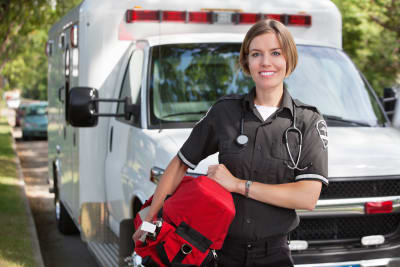Medical billing and coding require much practice and diligent information assimilation. Once all of these are done, however, there remains a need for further confirmation that candidates have indeed acquired the necessary skills for practical, field-specific tasks.
This is where certifications come in.
Technically, certifications are optional in the medical coding and billing field. But given the incredible leverage one can obtain by possessing them, anyone who has successfully obtained a degree or diploma in the area should endeavor to add several of these certifications to their resume.
We take a look at the best ways to go about doing this below.
What is a Medical Coding Certification?
A medical coding certificate indicates that a candidate has taken the extra steps to acquire a secure fundamental knowledge of the medical coding and billing field. It shows that they have what it takes to excel in a specialized capacity in their area.
Consequently, they can carry out their jobs more effectively, thereby providing more value to their employers and patients.
While a handful of certifications are available for a medical coder and biller, they all vary in popularity and pertinence. We’ll be taking an in-depth look at all of these below, but first, a glance at why you need to get certified in the first place.
Why Get Certified?
First of all, getting certified is good for you because it helps provide a valuable boost in confidence. The certification enables you to believe that you don’t just know what you’re doing; you know it very well.
Not going through the certification exams might leave a little doubt in your heart that there are perhaps some things you’re not yet good at. But finally, passing the exams clears all doubts.
Secondly, although it isn’t technically mandatory, many employers and organizations now consider certifications before hiring.
If you want to give yourself an edge over the field or at least ensure you’re not behind, then a certification is the way to go.
How to Get Medical Billing & Coding Certification
As mentioned, several different certifications are available for medical billers and coders. We look at some of the most important and popular below.
Certified Professional Coder - CPC
The American Association of Professional Coders (AAPC) offers the CPC as a valuable certification type for coders working in an outpatient setting. Examples are those working in physician’s offices or outpatient clinics.
This certification is arguably the most popular in its field.
Requirements and Exam Details
While there are no strict requirements, the AAPC recommends candidates taking the CPC exams have at least an associate degree and a little work experience.
Also, once the exam is complete, those without prior professional experience will only receive a CPC- and will only be fully certified when they obtain at least two years of professional experience.
The CPC exam consists of 150 questions divided into 12 distinct sections.
Certified Coding Specialist - CCS
The CCS certification is available through the American Health Information Management Association (AHIMA) for those looking to further their medical coding careers at inpatient facilities. This is the closest in popularity to the CPC.
Requirements and Exam Details
A coder looking to sit for the CCS exam must possess a diploma or degree from a recognized training program, two years of medical coding work experience, and an existing coding certification.
The exam covers four major categories: coding knowledge and skills, provider queries, coding documentation, and regulatory compliance.
Certified Medical Coder - CMC
The Practice Management Institute (PMI) awarded the CMC and is less popular than the CPC and CCS. Nonetheless, it continues to increase in appreciation and is attaining a comparable level to both certifications.
Requirements and Exam Details
Many believe the CMC exams are more challenging than the CPC and the CCS. Applicants must possess at least one year of professional work experience under their belts.
Unlike the previous certifications, the CMC exams are not offered in a multiple-choice format. Instead, it requires analyzing scenarios and filling in the banks appropriately.
Specialized Medical Coding Certificates by AAPC
While the three entries above (CPC, CCS, & CMC) are regarded as entry-level certifications, for an even higher salary, medical coders and billers should consider more specialized certifications offered by the AAPC & AHIMA, those that fall into the AAPC category include:
- Certified Outpatient Coder (COC) - Formerly known as CPC-H, the COC is for coders working in a hospital setting.
- Certified Inpatient Coder (CIC) - The CIC is for those who work in inpatient settings.
- Certified Professional Coder Payer (CPC - P) - Health insurance companies and other healthcare payers can have coders, too. The CPC-P is the specialized certification for those in this area.
- Certified Risk Adjustment Coder (CRC) - The CRC is for medical coders in risk adjustment settings.
- Other specialty certifications offered by the AAPC include ambulatory surgical center (CASCC), anesthesia and pain management (CANPC), Cardiology (CCC), and Cardiovascular and thoracic surgery (CCVTC), among others.
- Certified Coding Associate (CCA) - The CCA is for entry-level coders who work in hospital and physician-based settings. It requires a high school diploma and six months of professional experience.
- Certified Coding Specialist - Physician-based (CCS-P) - The CCS-P is just like the CCS, only this time for specialized coders in physician-based settings.
Notable Medical Coding Certification Programs
A handful of medical colleges and universities provide opportunities to obtain professional certifications in medical coding. Some of the most notable are Cowley College in Arkansas City, Davenport University in Grand Rapids, Minnesota West Community & Technical College in Worthington, and California State University in San Bernardino.




